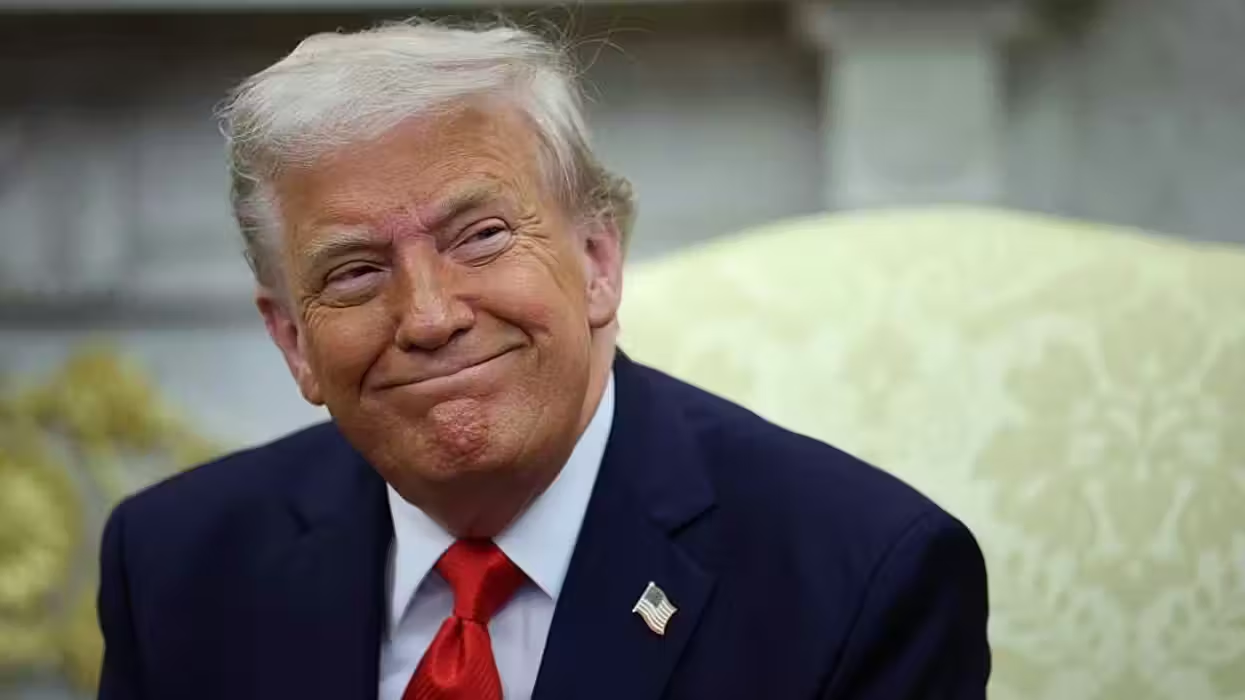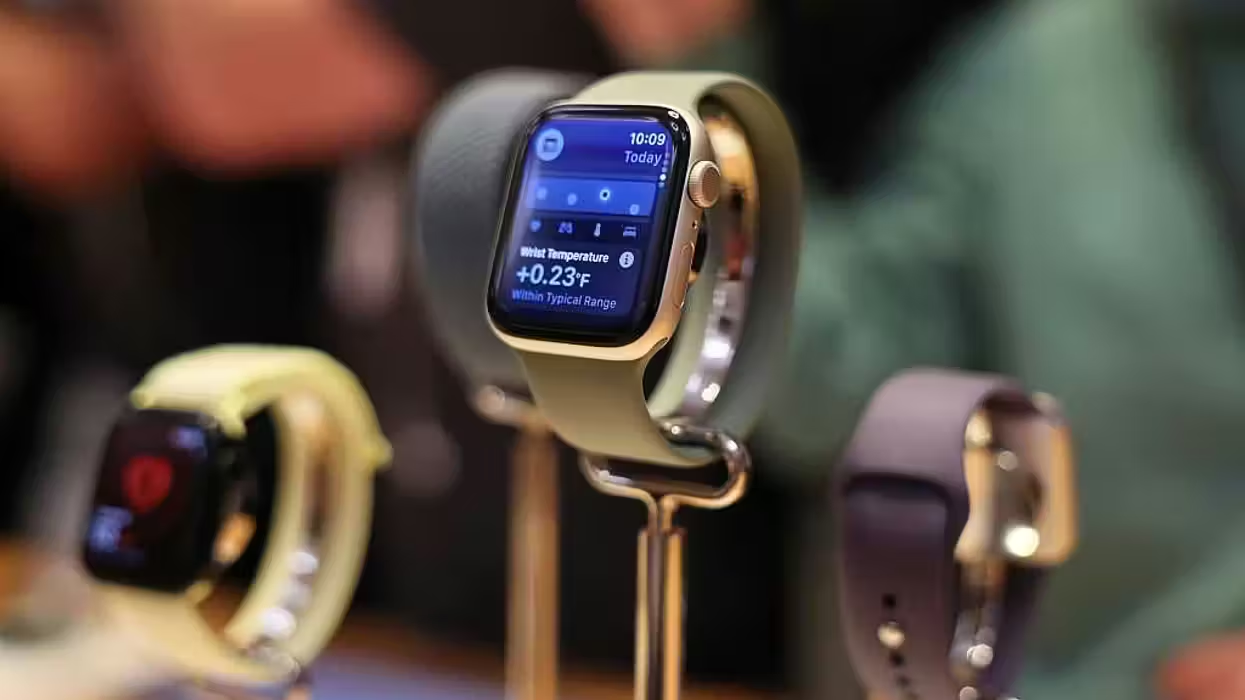- Some countries against U.S. surveillance programs are calling for a U.N. resolution to scale back NSA spying capabilities to protect "privacy of citizens in their home states under their own home legislation."
- A NSA memo recently revealed it targeted the phones of 35 world leaders.
- "Today, no telephone in America makes a call without leaving a record with the NSA. " -- whistleblower Edward Snowden
- An antisurveillance rally is set for this weekend in Washington, D.C., with congressional leaders, former NSA officials and privacy advocates.
BRUSSELS (TheBlaze/AP) — European Union leaders on Friday vowed to maintain a strong trans-Atlantic partnership despite their anger over allegations of widespread U.S. spying on its allies. Some countries though are reportedly pushing for a U.N. resolution for new surveillance rules to be agreed upon with the U.S. by the end of the year.
"What is at stake is preserving our relations with the United States," French President Francois Hollande said early Friday, insisting that "trust has to be restored and reinforced."
 In this picture taken Sept. 7, 2013, acitivists protest with posters during the demonstration in Berlin, Germany. (AP Photo/dpa,Rainer Jensen)
In this picture taken Sept. 7, 2013, acitivists protest with posters during the demonstration in Berlin, Germany. (AP Photo/dpa,Rainer Jensen)
Heading into the final day of their summit, most EU leaders shared the view that good partnership trumped deep resentment over the snooping of U.S. security services.
"The main thing is that we look to the future. The trans-Atlantic partnership was and is important," said President Dalia Grybauskaite of Lithuania, whose country holds the EU presidency.
On Thursday's opening day of the summit, the spying issue united the 28 EU leaders in criticizing the snooping on Thursday's after allegations surfaced that German Chancellor Angela Merkel had one of her mobile phones tapped by U.S. services.
 In this photo illustration German newspapers with front page photos referring to the NSA eavesdropping of German Chancellor Angela Merkel's phone scandal lie arranged on October 25, 2013 in Berlin, Germany. German media reported the day before that German officials have strong evidence indicating that the Nation Security Agency has eavesdropped on Chancellor Merkel's mobile phone. The charge, which has not been denied by the White House outright, has caused a furor among political leaders across Europe. (Sean Gallup/Getty Images)
In this photo illustration German newspapers with front page photos referring to the NSA eavesdropping of German Chancellor Angela Merkel's phone scandal lie arranged on October 25, 2013 in Berlin, Germany. German media reported the day before that German officials have strong evidence indicating that the Nation Security Agency has eavesdropped on Chancellor Merkel's mobile phone. The charge, which has not been denied by the White House outright, has caused a furor among political leaders across Europe. (Sean Gallup/Getty Images)
Foreign Policy's The Cable reported late Thursday that Germany and Brazil are seeking a U.N. resolution to scale back U.S. surveillance activities (emphasis added):
Brazil and Germany are hoping to put the resolution to a vote in the U.N. General Assembly human rights committee later this year. The draft resolution, which has not been made public and which is still subject to negotiation among U.N. states, will seek to apply the those protections to online communications. "This is not just about spying," said the diplomat. This is about ensuring that "privacy of citizens in their home states under their own home legislation.""It calls on countries to put an end to violations of that right," the official said. "People have to be protected offline and online."
Merkel's government said Friday that senior officials will travel to the U.S. "shortly" for talks at the White House and with the National Security Agency to push forward efforts to clear up the surveillance allegations.
Government spokesman Georg Streiter said the heads of Germany's foreign and domestic intelligence agencies would participate. He did not give specific dates, saying that they would be arranged at "relatively short notice."
Merkel and Hollande insisted that beyond being fully briefed on what happened in the past, the European allies and Washington need to set up common rules for surveillance which does not impede the fundamental rights of its allies.
"The United States and Europe are partners but this partnership must be built on trust and respect," Merkel said early Friday. "That of course also includes the work of the respective intelligence services."
 In this file photo German Chancellor Angela Merkel and U.S. President Barack Obama speak at a press conference on June 19, 2013 in Berlin, Germany. German media reported on October 24, 2013 that German authorities had evidence that the National Security Agency has been eavesdropping on Merkel's mobile phone. Merkel telephoned the same day with U.S. President Barack Obama to complain and the incident has caused an international outcry among politicians across Europe. (Sean Gallup/Getty Images)
In this file photo German Chancellor Angela Merkel and U.S. President Barack Obama speak at a press conference on June 19, 2013 in Berlin, Germany. German media reported on October 24, 2013 that German authorities had evidence that the National Security Agency has been eavesdropping on Merkel's mobile phone. Merkel telephoned the same day with U.S. President Barack Obama to complain and the incident has caused an international outcry among politicians across Europe. (Sean Gallup/Getty Images)
White House spokesman Jay Carney said the Obama administration was discussing Germany's concerns "through diplomatic channels at the highest level," as it was with other U.S. allies worried about the alleged spying.
Unlike Germany, France and Belgium, Britain has not complained publicly about NSA actions, which could complicate European leaders' attempt to present a united front in the unusually heated row with the United States.
Britain and the United States enjoy a strong, mutually beneficial intelligence sharing program, and Prime Minister David Cameron's spokesman has refused to comment on the current controversy.
The White House may soon face other irked heads of state and government. The Guardian, a British newspaper, said it obtained a confidential memo suggesting the NSA was able to monitor 35 world leaders' communications in 2006.
The memo said the NSA encouraged senior officials at the White House, Pentagon and other agencies to share their contacts so the spy agency could add foreign leaders' phone numbers to its surveillance systems, the report said.
 In this image made from video released by WikiLeaks on Friday, Oct. 11, 2013, former National Security Agency systems analyst Edward Snowden smiles during a presentation ceremony for the Sam Adams Award in Moscow, Russia. (AP)
In this image made from video released by WikiLeaks on Friday, Oct. 11, 2013, former National Security Agency systems analyst Edward Snowden smiles during a presentation ceremony for the Sam Adams Award in Moscow, Russia. (AP)
Shortly after this report, whistleblower Edward Snowden, who was behind the major leaks of these classified surveillance programs, released a statement, saying (emphasis added):
In the last four months, we've learned a lot about our government.
We've learned that the U.S. intelligence community secretly built a system of pervasive surveillance. Today, no telephone in America makes a call without leaving a record with the NSA. Today, no internet transaction enters or leaves America without passing through the NSA's hands. Our representatives in Congress tell us this is not surveillance. They're wrong.
This statement directly countered Sen. Diane Feinstein's (D-CA) op-ed in USA Today defending NSA's "call-records program" as "not surveillance."
Snowden's statement was in support of an antisurveillance rally being held in Washington, D.C., Saturday by the StopWatching.Us coalition, which includes organizations like the ACLU and EFF.
This rally is the same that released the celebrity-filled video this week, blasting the government's spy programs:
Obama adviser for homeland security and counterterrorism Lisa Monaco disputed Snowden's statement in another editorial published on USA Today's website Thursday night. She said the U.S. government is not operating "unrestrained."
The U.S. intelligence community has more restrictions and oversight than any other country, she wrote. "We are not listening to every phone call or reading every e-mail. Far from it."
Robert Wielaard contributed from Brussels, Geir Moulson from Berlin and Gregory Katz from London.
--
[related]

 In this picture taken Sept. 7, 2013, acitivists protest with posters during the demonstration in Berlin, Germany. (AP Photo/dpa,Rainer Jensen)
In this picture taken Sept. 7, 2013, acitivists protest with posters during the demonstration in Berlin, Germany. (AP Photo/dpa,Rainer Jensen)





